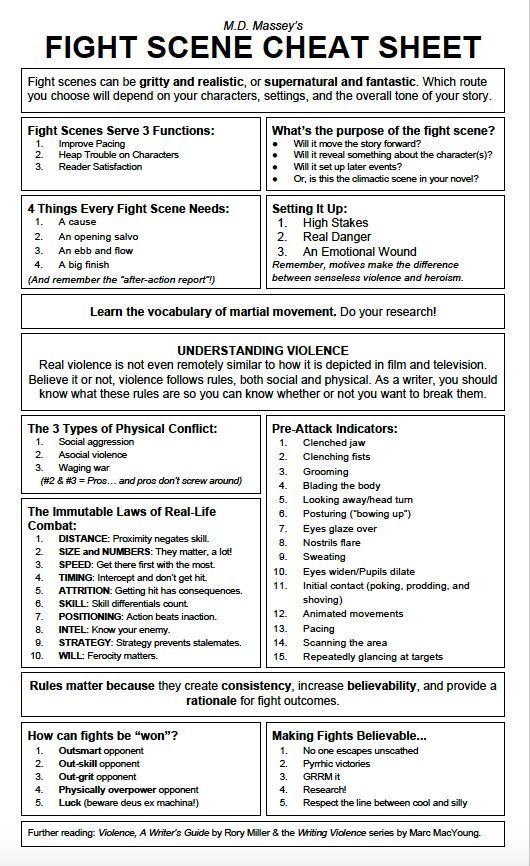Write What The Fuck You Want.
I'm not sure I can express this sentiment strongly enough, but I'm going to try via the medium of large bolded text.
Write what the fuck you want.
Write what makes you happy. Write what makes your soul sing. Write what fucks you up and makes you cry. Write what comforts you. Write what distracts you. Write what you want to read. Write what you want to watch.
Write what you want to dream about tonight.
Write what you can't get enough of. Write what you're completely obsessed with. Write what wakes you up at 4am and drags you out of bed because you can't stop thinking about what your characters are going to do next.
Write what turns you on, if that's your vibe. Write characters you're in love with and characters who inspire you and characters you want to be friends with and characters you fucking hate but oh my god they're so much fun.
Write about things you would sell your soul to do in real life and things you would never do in real life. Write about things that are happening right now and things that happened a thousand years ago and things that might happen in the future and things you wish could happen.
Write to get a publishing deal or to sell your books yourself or not to sell your books at all. Write for your friends or for strangers or for the people who reblog your posts on Tumblr and send you songs that remind them of your characters.
Write for yourself.
Fuck any system that tells you there's only one right way to create or one valid way to share your writing. Your story, the way you tell it, has so much value. Make people smile or piss people off or do both of those things because art is divisive and fascinating and beautiful.
Start writing. Keep writing. And write what the fuck you want.
More Posts from Lune-versatile and Others
A Quick Guide to Foreshadowing!
Foreshadowing - a warning or indication of a future event. In literature, it is when an author provides readers with hints or suggestions as to what will happen later in the story.
Foreshadowing can be used to create tension and set expectations as to how the story will play out. Can inspire reader emotions–suspense, unease, curiosity,
Types of Foreshadowing
Chekhov’s Gun The author states something that they want you to be aware of for the future - in the eponymous example, a gun hanging on the wall in an early chapter will be used later.
Prophecy A statement to character/ reader about what will happen in the future. Although sometimes unclear at first, they normally become true by the end.
Symbolism A more abstract way of foreshadowing, often shown through things like objects, animals, images and weather. Often foreshadows change in mood, luck or behaviour.
Flashback/Flashforward When the author needs the reader to know something that happened that doesn’t fit with the current timeline. Often there will be hints/clues for things that the writer wants you to remember/pick up on later.
Red Herring A type of foreshadowing that deliberately misleads the reader. False clues such as a character finding another suspicious, etc., may lead you to believe one thing when, in reality, they will have done nothing wrong
Tips and Tricks for Effective Foreshadowing!
Don’t foreshadow too obviously - signpost rather than state! Arouse suspicion, but keep them guessing!
If you make a promise, keep it!
The bigger the twist, the earlier it should be foreshadowed! Foreshadowing too soon is essentially a spoiler
Keep foreshadowing in moderation
Use beta-readers - sometimes our foreshadowing feels so obvious to us but it may not to other people who aren’t as close!
Hello, love. Do you have any advice on how to self-edit a short story after completing the first draft?
5 Tips for Editing a Short Story
1) Reconsider the First Paragraph
With short stories, it's even more important that the first paragraph starts off with a bang. You really don't want it to be exposition if you can avoid it. Instead, start when something is happening. In other words, start with action.
Exposition: The moon hung high in the star-speckled sky, turning the snow into a radiant white blanket.
Action: The girl crept out the door into the star-speckled night, leaving a trail of tiny footprints in the moonlit blanket of snow.
2) Consider Each Paragraph's Purpose
The limited length of short stories means it's all the more important for each paragraph to pull its weight. For each paragraph, ask yourself, "What is lost if I cut this paragraph? Will the reader still understand the story?" Get rid of paragraphs that don't need to be there.
3) Cut Unnecessary Details
In novels, we can take the time to add details that are only there to embellish the world or characters for the reader. In short stories, it's much more important for details to really matter.
4) Watch Out for Repetition
Make sure no details, ideas, actions, etc. are repeated unless they truly need to be. In a short story, you probably don't need to describe the main character's town as sleepy/charming/quiet more than once, for example.
5) Zap Some Adverbs and Adjectives
Adverbs and adjectives are one of those things we don't typically need...
With: The small girl crept quietly out the door into the cold, star-speckled night, carefully leaving a long trail of tiny footprints in the moonlit blanket of snow
Without: The girl crept out the door into the star-speckled night, leaving a trail of tiny footprints in the moonlit blanket of snow.
What I Zapped and Why:
Small - The reader will know she's small because her footsteps are later described as "tiny."
Quietly - The word "crept" already implies quiet.
Cold - She's walking in snow at night. It's obviously cold.
Carefully - Also implied by "crept."
Long - Not important, also somewhat implied by "trail." If she left a short trail that would be a noteworthy detail.
Best of luck with your editing!
•••••••••••••••••••••••••••••••••
Have a writing question? My inbox is always open!
Visit my FAQ
See my Master List of Top Posts
Go to ko-fi.com/wqa to buy me coffee or see my commissions!
5 Ways to Make Your Writing Sessions More Productive
1. Set specific goals: Before each writing session, establish clear objectives for what you want to accomplish. This helps you stay focused and motivated throughout the session. Whether it's completing a certain number of pages, reaching a specific word count, or finishing a particular section, having a goal in mind keeps you on track.
2. Create a conducive writing environment: Find a quiet and comfortable space where you can minimize distractions. Eliminate clutter, turn off notifications on your electronic devices, and set up a writing area that inspires creativity. Some people find instrumental music or ambient sounds helpful for concentration, so experiment to find what works best for you.
3. Develop a routine: Establish a regular writing schedule and stick to it. Consistency builds momentum and makes writing sessions feel more like a habit. Whether you prefer to write early in the morning, late at night, or during specific time blocks throughout the day, find a routine that aligns with your energy levels and other commitments.
4. Use productivity techniques: Explore different productivity techniques to enhance your focus and efficiency. One popular method is the Pomodoro Technique, which involves working for a concentrated period (e.g., 25 minutes) followed by a short break (e.g., 5 minutes). Repeat this cycle several times, and then take a longer break (e.g., 15-30 minutes). Other techniques include time blocking, task prioritization, and setting deadlines.
5. Minimize self-editing during the drafting phase: When writing your first draft, try to resist the urge to constantly edit and revise. Instead, focus on getting your ideas down on paper without judgment. This allows for a more continuous flow of thoughts and prevents self-censorship. Save the editing for later drafts, as separating the drafting and editing stages can lead to increased productivity and creativity.
Finish Your Drafts (please)
I have this really bad habit of getting most the way through a draft, seeing how it needs to change structurally and… starting a new one. I have countless unfinished drafts and shorts and written out ideas that haunt me with their cut off sentences and half paragraphs.
Here’s the part that sucks. Finishing a draft is always worth it. Always. No matter how messed up your beginning may be, how much you need to rework or change, how much just isn’t coming together. Get through to the end, even if you have to write a bunch of stuff you aren’t proud of to get there, get through to the end.
I learned more about my novel from one finished draft than I did from the five unfinished ones after it. You need to explore your ending, because your ending is the most important part of the entire piece.
This month we explored outlining and character arcs—all of that planning, all of that work we’ve put into this project leads up to the ending. The ending will tell you more about your direction and how the pieces you’ve tried to put together are working than anything else. It’s the one place you can’t hide. Either the ending wraps up how you want it to, or you need to go back to the drawing board.
I almost didn’t finish that one draft. I knew there was a huge gaping problem I hadn’t noticed before right in the middle and that I had to rework some stuff. I nearly stopped there, but I pushed forward instead. It was there that I discovered a large part of that problem was the ending I had planned. I was working towards the wrong thing, so of course the middle would fall apart.
You’ll be able to see your character arcs, your theme, your subplots, all of it needs to be addressed in the ending, so your ending is going to tell you what is working and what isn’t.
Push through to the finish line. Best case scenario you understand your work and process on a deeper level. Worst case, you have a finished draft—and that’s always something to be proud of.
Good luck! Happy end of February. Next month we’ll be talking about some other ways to create characters and voice, amongst other things. I’m looking forward to it!
hey do you have any tips on how to write surreal horror (mostly short stories?) it's a genre that i've really been interested in trying to write, but i'm not too sure how to go about it (and thanks for providing such a useful blog :D)
I love surreal horror.
Okay.
Plot twists are your best friend. Do the unexpected. Do a 180 last second, turn everything around on the reader. Obviously it has to be believable with in the context of the story, but keep it a surprise.
False sense of security? Works wonders. Nothing is safe. Let readers think something is good/pure/innocent/calm/safe/helpful/etc when it’s not. Lure them into that trap. Let them believe and then rip it away from them.
Invert things. Similar to the false sense of security. Take things that are usually strongly associated with one thing, and associate it with the opposite. Take something dark and make it the good thing. Take something bright and make it evil. Take something sweet and make it bitter. Take something healthy and make it deadly. If you do it right, you can make the reader curiously uncomfortable.
With surreal horror you want to shock your reader. You want to make them feel strangely uncomfortable. You want to make them question things.
Hope that helps :)


Your narrator and each of your characters should sound different from one another (unless your story is in the first person and one of the characters is actually telling the story!). Remember that no two people speak in exactly the same way, so if all your characters sound identical to your narrator, it will pull the reader out of the story.

Every person has distinct vocal habits or “go-to’s,” words or phrases they use often, and giving your characters their own vocal “go-to’s” can help lend them some realism and make it easier to tell them apart from one another. Here’s a little hint: we use these “go-to’s” even more often when we’re distracted or not fully paying attention to the conversation and what we’re saying.

People sometimes stumble over their words. Let your characters stutter, or repeat themselves, or forget what they were about to say, or even ramble sometimes, especially if they are feeling flustered or overwhelmed in the scene. This will add realism to your dialogue, and make your characters seem more real to your readers!

Just like in real life, the situation should affect how your character speaks. For example, if a character has just gotten a big, unpleasant surprise, they probably won’t be in the right frame of mind to make a calm, articulate speech. Think about what’s happening and how it will affect what your character says and the way that they say it.

Most people speak differently depending on who they are talking to. For example, you probably wouldn’t talk to your boss the same way you would talk to a friend! Think about your character’s relationship to the person they’re talking to, and how they feel about that person, and let that come out in their dialogue.

Descriptive verbs (like “exclaimed” or “demanded” instead of “said”) are a great way to breathe some life into your dialogue, because they give the reader more information, telling us not just what the character said but how they said it. On the other hand, when used too often, or incorrectly, descriptive verbs can pull the reader right out of the story (for example, using “demanded” when the character isn’t making any kind of demand in their dialogue).
5 Ways to Make Your Writing Sessions More Productive
1. Set specific goals: Before each writing session, establish clear objectives for what you want to accomplish. This helps you stay focused and motivated throughout the session. Whether it's completing a certain number of pages, reaching a specific word count, or finishing a particular section, having a goal in mind keeps you on track.
2. Create a conducive writing environment: Find a quiet and comfortable space where you can minimize distractions. Eliminate clutter, turn off notifications on your electronic devices, and set up a writing area that inspires creativity. Some people find instrumental music or ambient sounds helpful for concentration, so experiment to find what works best for you.
3. Develop a routine: Establish a regular writing schedule and stick to it. Consistency builds momentum and makes writing sessions feel more like a habit. Whether you prefer to write early in the morning, late at night, or during specific time blocks throughout the day, find a routine that aligns with your energy levels and other commitments.
4. Use productivity techniques: Explore different productivity techniques to enhance your focus and efficiency. One popular method is the Pomodoro Technique, which involves working for a concentrated period (e.g., 25 minutes) followed by a short break (e.g., 5 minutes). Repeat this cycle several times, and then take a longer break (e.g., 15-30 minutes). Other techniques include time blocking, task prioritization, and setting deadlines.
5. Minimize self-editing during the drafting phase: When writing your first draft, try to resist the urge to constantly edit and revise. Instead, focus on getting your ideas down on paper without judgment. This allows for a more continuous flow of thoughts and prevents self-censorship. Save the editing for later drafts, as separating the drafting and editing stages can lead to increased productivity and creativity.
The right FREE tools to write a book
hello hello, it's me!
today I was thinking of how much you loved my masterlist featuring some free tools for writers, and I thought I would do something like that again but, this time, featuring just one or two tools per step while getting the best of "the writer's workbook" (which is also free).
before going any further, for those who don't know, "the writer's workbook" is, as the name says, a workbook for writers, with over 90 pages. it has lots of sheets divided into categories, to help you build the skeleton of your novel. (know more about it here).
however, we can get the most out of it using other complementary tools to ease this process.
Brainstorming
Reedsy generator - it's one of my favorites, and it can be quite useful when you're stuck and want to get an idea. you're free to make changes to it so that it is as unique as possible.
Mindmap
Lucidspark - although it has a premium version, I find it so helpful when it comes to making a mindmap. I've used it multiple times before, including for college assignments, and it's one of the best I've found so far.
Mindmup - I'm sharing this one here as an alternative to lucidspark, since this one doesn't require to create an account, and you have access to unlimited maps. however, in my opinion, it is not as good or intuitive as lucidspark is.
Come up with names
Behind the name - it's a classic, but one of my favorites. you can search every name you could ever imagine, and get its meaning, history, variations, etc. it still has some tools you can use such as a name generator, anagrams, and much more.
Make a profile
Fake person generator - although it was not created for authors, you might find it useful since it gives lots of details and you can be interested in some fields.
Character generator - this one was made for writers, and is simple and easy to use.
Family tree
Family echo - it's so simple yet so helpful.
Maps
Inkarnate - it has a paid version, but you can use it for free and create a great map.
Politics
Filteries - this is sooo complete and accurate!
hope this was helpful! have a nice day <3

Writing tool for your fight scenes.
-
 varietyoflol liked this · 1 week ago
varietyoflol liked this · 1 week ago -
 chili-heeler reblogged this · 1 month ago
chili-heeler reblogged this · 1 month ago -
 catzooz reblogged this · 1 month ago
catzooz reblogged this · 1 month ago -
 catzooz liked this · 1 month ago
catzooz liked this · 1 month ago -
 kjobugs liked this · 1 month ago
kjobugs liked this · 1 month ago -
 muffinhead2 liked this · 1 month ago
muffinhead2 liked this · 1 month ago -
 darthbloodorange reblogged this · 1 month ago
darthbloodorange reblogged this · 1 month ago -
 forthechubbies liked this · 1 month ago
forthechubbies liked this · 1 month ago -
 cozyteademon liked this · 1 month ago
cozyteademon liked this · 1 month ago -
 octarina reblogged this · 1 month ago
octarina reblogged this · 1 month ago -
 philologicalbat liked this · 2 months ago
philologicalbat liked this · 2 months ago -
 octarina liked this · 2 months ago
octarina liked this · 2 months ago -
 chi-fandoms reblogged this · 2 months ago
chi-fandoms reblogged this · 2 months ago -
 chi-fandoms liked this · 2 months ago
chi-fandoms liked this · 2 months ago -
 eghfeithrean liked this · 2 months ago
eghfeithrean liked this · 2 months ago -
 sophiahoppia reblogged this · 2 months ago
sophiahoppia reblogged this · 2 months ago -
 calamity-talvi reblogged this · 2 months ago
calamity-talvi reblogged this · 2 months ago -
 calamity-talvi liked this · 2 months ago
calamity-talvi liked this · 2 months ago -
 orchisailsa reblogged this · 2 months ago
orchisailsa reblogged this · 2 months ago -
 rumbleonthemill liked this · 2 months ago
rumbleonthemill liked this · 2 months ago -
 starlantern reblogged this · 2 months ago
starlantern reblogged this · 2 months ago -
 superstud1957 liked this · 2 months ago
superstud1957 liked this · 2 months ago -
 goodbloker reblogged this · 2 months ago
goodbloker reblogged this · 2 months ago -
 goodbloker liked this · 2 months ago
goodbloker liked this · 2 months ago -
 allmoifaves liked this · 2 months ago
allmoifaves liked this · 2 months ago -
 electronicharmonypainter liked this · 2 months ago
electronicharmonypainter liked this · 2 months ago -
 mintcarus liked this · 2 months ago
mintcarus liked this · 2 months ago -
 solarisricefield reblogged this · 3 months ago
solarisricefield reblogged this · 3 months ago -
 livpet liked this · 3 months ago
livpet liked this · 3 months ago -
 blandspaghetti14 liked this · 3 months ago
blandspaghetti14 liked this · 3 months ago -
 nightjasmine10 reblogged this · 3 months ago
nightjasmine10 reblogged this · 3 months ago -
 nightjasmine10 liked this · 3 months ago
nightjasmine10 liked this · 3 months ago -
 melancholia00 reblogged this · 3 months ago
melancholia00 reblogged this · 3 months ago -
 melancholia00 liked this · 3 months ago
melancholia00 liked this · 3 months ago -
 steinozean liked this · 3 months ago
steinozean liked this · 3 months ago -
 crimsonshadesblog liked this · 3 months ago
crimsonshadesblog liked this · 3 months ago -
 numerous-knives liked this · 3 months ago
numerous-knives liked this · 3 months ago -
 katie5000 liked this · 3 months ago
katie5000 liked this · 3 months ago -
 nightmarenoise liked this · 3 months ago
nightmarenoise liked this · 3 months ago -
 goldenteaset reblogged this · 3 months ago
goldenteaset reblogged this · 3 months ago -
 goldenteaset liked this · 3 months ago
goldenteaset liked this · 3 months ago -
 setsuntamew reblogged this · 3 months ago
setsuntamew reblogged this · 3 months ago -
 setsuntamew liked this · 3 months ago
setsuntamew liked this · 3 months ago -
 nattobees liked this · 3 months ago
nattobees liked this · 3 months ago -
 richieshepard liked this · 3 months ago
richieshepard liked this · 3 months ago -
 rosemirmir reblogged this · 3 months ago
rosemirmir reblogged this · 3 months ago -
 elshalarossa liked this · 3 months ago
elshalarossa liked this · 3 months ago -
 sfdudeindistress liked this · 3 months ago
sfdudeindistress liked this · 3 months ago







